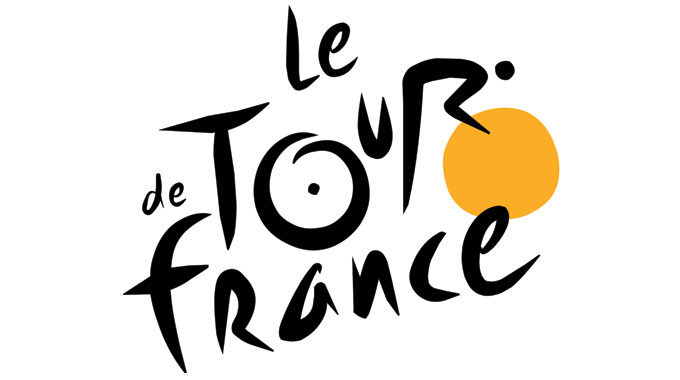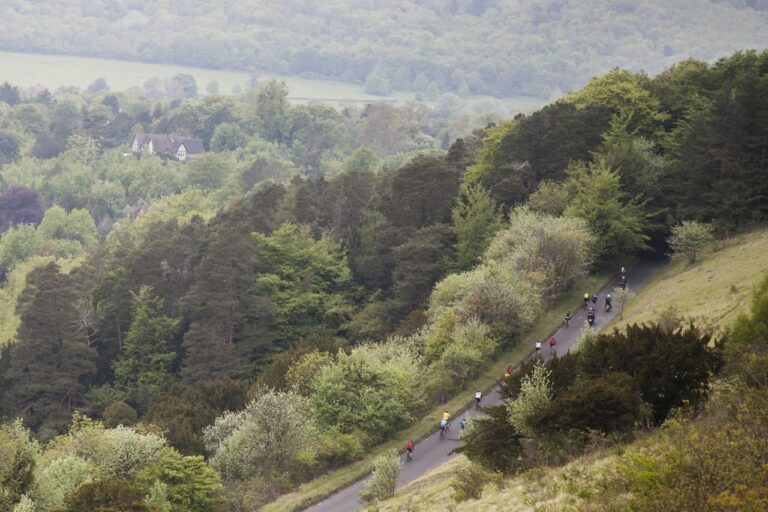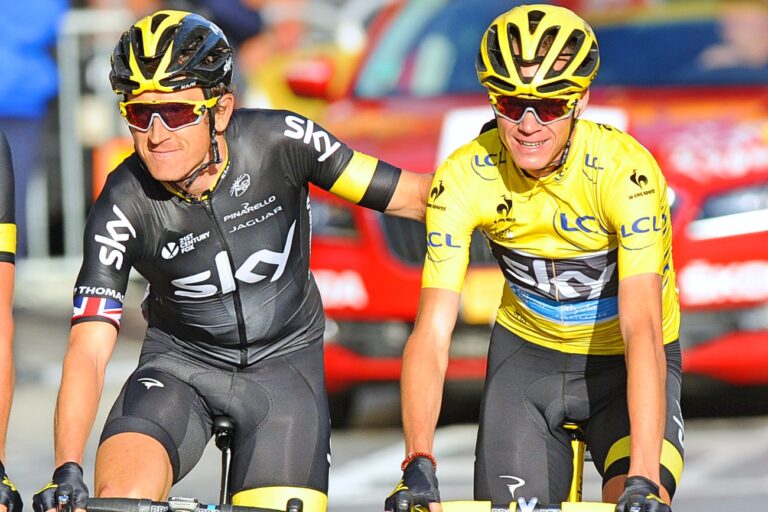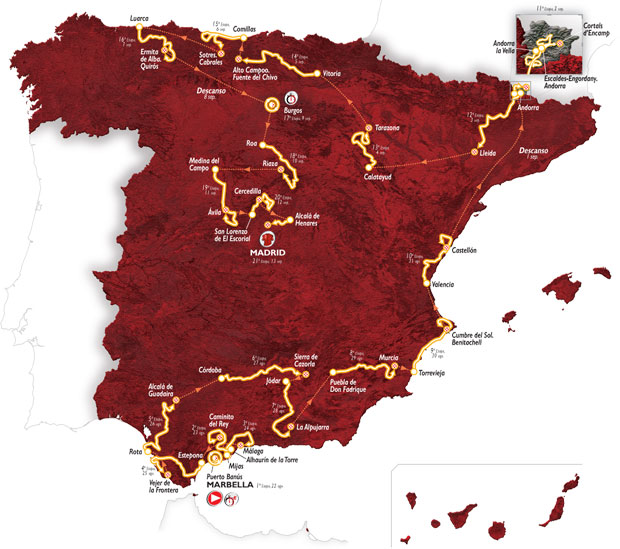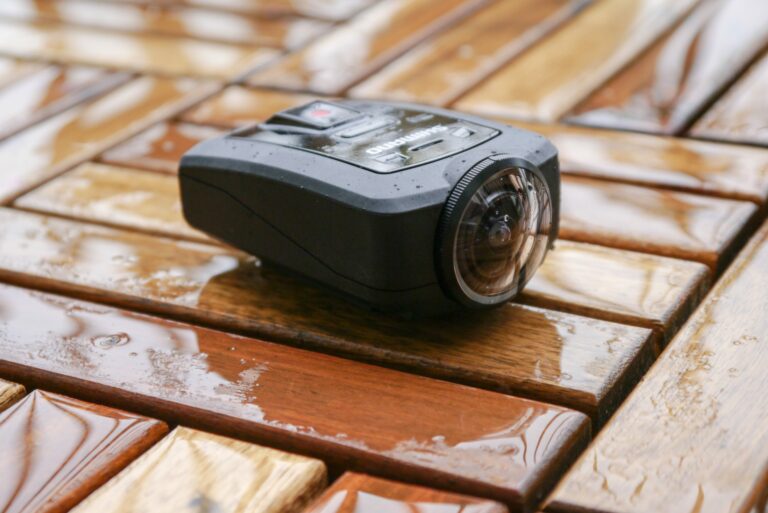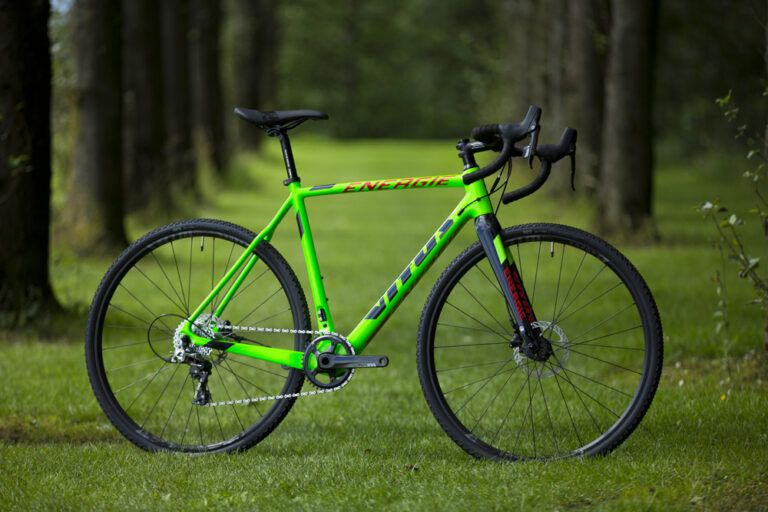To cycling fans, Carlton Kirby’s voice has become synonymous with the sport, having become an integral part of British Eurosport’s race coverage.
Kirby has more than two decades as a commentator behind him and, alongside Irish legend Sean Kelly, has been back at the Tour de France this year calling the action from Utrecht through to Paris.
From wrestling with sound walls, coping with dropped audio, working with Sean Kelly and deciphering the ‘Kirby CODEC’, we caught up with Kirby midway through the race to get an insight into life on Tour as a commentator.

The commentator’s day doesn’t just start when the racing does, with research and planning underway as soon as breakfast is taken. Kirby says he opens the Tour’s road book (the bible for riders and media alike) first and foremost, having to change all of the notes to match his commentary notes and the on-screen graphics – counting down the kilometres, rather than up as the book does.
A close study of the final 20 kilometres follows, picking out key hazards like pinch points, street furniture and likely attack points, before the repeating the study in the car alongside King Kelly as the pair make their way to the commentary point at the stage finish. Not that it’s a straightforward drive to the finish at the Tour, as Kirby explains.
Starting at the finish
“We usually have to drive to the finish line, which is where the commentary positions normally are – they’re like double-decker coaches all lined up there,” Kirby sayd. “Most races have one unit but the Tour de France has four double-decker units.
“It’s a massive operation. It means sometimes we’re not actually commentating from the finish line because the Tour de France is so huge – there’s about 8,000 people attached to the Tour. You can also sometimes find your hotel is one or two hours away.
“When we drive to the finish we’ll usually get on the course, because we’re badged up to do it, and then make notes. I’ll be making notes when Sean Kelly’s driving, which can be a difficult thing! “I make notes of the corners, pinch points, danger points, acceleration points, attack points – all of those things.”
Kirby continues to put his notes together once he arrives at the commentary booth, reading the local press and Kelly’s grasp of colloquial French coming into its own.

The ‘Kirby CODEC’ will also be called into action – as his followers on Twitter will know. It’s Kirby’s cheat sheet for every stage in the race, with details of the top finishers, jersey wearers, men in the breakaway and so on.
“You can sound like you’re a genius, with an incredible memory,” Kirby says. “When actually it’s just hand-written sheet of notes to recall from.”
Before Kirby hits the airwaves, he touches base with Eurosport HQ in Paris, and then it’s time to take to the microphone. And if you ever thought the job of the commentator was easy, think again, with the ability to multi-task a key skill for anyone working in live television.
Carlton says relax
“The best thing you can do is relax, in my opinion,” Kirby explains about going live on air. “To show no fear is the best skill of all. There’s so much stuff going on because in front of us for starters, we have live timing, results sheets, stage profiles, live pictures, alternative live pictures and a sub-monitor with the schedule. In my ear I have a producer telling me when we have interviews, drop-in features, ad breaks and cue points.”
Cue points, Kirby adds, are a bigger problem at Eurosport than with other networks, with producers calling for radio silence across the Eurosport’s various national broadcasts to assist with the editing process.
“Eurosport have a lot of these, so there’s a lot of conversation going on in your ear [between producers] and it’s quite a task trying to keep the flow of what you are saying,” Kirby says. “At other broadcasters you still have cue points, but it’s usually after you’ve finished making a point [because you’re the only commentary team].

“At Eurosport, because the producer may not necessarily be listening to the English commentary, they’ll be occasions when I go to Sean and say, ‘so what do you think of Sagan?’ and he’ll start mulling it over and responding and then all of a sudden we’ll get a producing lining up a cue point in his ear, and he’ll have to switch from his usual, slow voice to speaking very quickly and wrapping up his point in five seconds for no apparent reason to the viewer. That’s one of the vagrancies of Eurosport.”
And alongside everything going on in his ear and on the screens in front of him, Kirby says the booths themselves can be a source of distraction from the job of commentating.
“You have engineers popping in and out, you have guests from the different languages, and the only thing separating us from the Germans, on our left, and the French, on our right, are thin sound walls – it’s completely open at the back,” he says.
“The walls do move when they pile in too. You have a sound wall battle, where they’re shoving one way and we’re shoving the other while trying to sound calm and interesting on the commentary when actually what you want to do is knock someone out!
“You also have picture breakdowns, sometimes audio breakdowns – so we’ve got all that going on and we haven’t even got on to the racing yet!”
Earning your corn
How do you call one of the biggest sporting events on the planet? Well, Kirby says, when it’s all out action on the road it’s very easy – the problem comes on long transition stages.
“There’s no doubt about it, the most difficult thing to do is cover nothing,” he says. “The Vuelta a Espana used to be the worst of the Grand Tours because they’d have transitions day of 250km across a desert.
“It was almost featureless and the riders would not engage in it at all. They’d often stop too – Euskaltel-Euskadi were one of the most common for that, they’d roll to the front, let everyone know it wasn’t an attack and then ride up the road to briefly chat to family!
“Those are definitely the days when you earn your corn. It’s quite nice at the Tour de France that we have a roadbook and a history book of everything we’re going through. It’s a case of trying to keep everybody amused.
“In the mountains, when you have say four significant peaks to climb, the day tells itself and often all you have to do is call it as it happens.
“They’re the best stages, and the most exciting ones, but often as a commentator the days you take the most pride in are actually the ones where absolutely sod all has happened! That’s when it down to you and not the riders.”

And then, of course, there are the flat stages and the sprint finishes. And anybody who has watched one unfold on TV will recognise the frantic speed of the commentary as the race reaches its climax.
Crescendo
“I usually increase the pace – especially on a sprint day – to match the peloton,” Kirby admits. “I can get caught out, particularly if there’s a crash in the last three kilometres, because that can animate the tempo even more and I have to keep something in reserve for the sprint finish.
“I do love the sport because it’s a crescendo sport. All crescendo sports deserve to be treated as such. It is a thrilling climax and it’s my job to convey that to the public. One thing I’ve always been able to do is, I believe, see a very wide picture and a lot of different movement, and call those fast and accurately.
“It’s not something that’s learned, or something you can prepare for. You have to say who they are, where they are on the road, what colour they’re in and call the tactics – and often all within 30-45 seconds of sheer hell and manic action. The word count for me at the end is almost blurred.”
Even once the race itself is over, and the post-analysis is done, there’s a second race to get away from the finish line. Kirby has the benefit of what he calls the ultimate pass – the presence of his legendary co-commentator – when it comes to cutting through the crowds and police lines.
After a long journey back to the hotel, often punctuated by Kelly taking media calls – especially on the stages he himself would have thrived on during his career – it’s then a debrief over dinner and back to bed for a seven-hour sleep and restarting the process again the next day.
And Kirby wouldn’t have it any other way, even if there are those who don’t always appreciate what goes into calling a Tour de France stage.
“There are people who love what I do, and others who hate it,” he admits. “I comfort myself with the fact that there are people out there who actually hate Terry Wogan.
“Some people take offence for the strangest reasons. Riders who perhaps finished tenth on a day will be livid that we didn’t eulogise about them, but I’m sorry, I was talking about the person who finished first.

“For every Nicolas Roche or Steve Cummings – great characters, totally locked down – there are some savage bastards out there, and we love them all. You can’t please everybody and as a commentator that’s something you have to get to grips with.
“You always get letters or emails from people who really enjoyed your commentary, but you’ll always get those who hate every fibre of your being.”
And yet, love him or loathe him, Kirby’s voice is as intrinsically linked to the Tour de France, for Eurosport viewers at least, as other famous voices across the sporting spectrum.
Every stage of the Tour de France LIVE on British Eurosport HD. Coverage includes enhanced production with access to helicopter, on-board and superslomo cameras.

